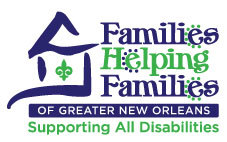Human trafficking is a serious global problem that has become a major threat to public safety here in the United States. Human trafficking is more than a crime – it’s an affront to human dignity and an attack on fundamental humanitarian values. The proliferation of human trafficking within and across the United States is one of the most pressing challenges that we face as a Nation. But as the many dedicated victim service providers, police officers, prosecutors, and brave survivors of this horrific crime around the world have shown us, the fight to end it has begun—and with our continued determination, it can be won.
Victims of human trafficking may develop disabilities from abuse at the hands of their traffickers, and individuals with disabilities may be targeted by traffickers because they are vulnerable. Many human trafficking task forces miss identifying this risk factor or fail to make provisions for people with disabilities. People with physical disabilities, cognitive or intellectual disabilities, sensory disabilities, and mental illnesses all need special attention and protection.
There are several factors that make people with disabilities vulnerable to trafficking.
- People with disabilities often rely on others to meet their basic needs. These caregivers have opportunities to traffic them as a result.
- People with disabilities may become submissive to their caregivers and comply with their caregivers’ wishes because they are so dependent upon them. This learned response makes the unequal power dynamic in a relationship with a trafficker, even if the trafficker is abusive, seem normal.
- People with disabilities may lead isolated lives and crave friendship and human connection. Because of this need, they may be persuaded to perform sexual acts if they are promised friendship or money as a reward. Isolation can also make it difficult or impossible for people with disabilities to make contact with people who could help them.
- Some people with disabilities cannot speak clearly or require communication devices or interpreters to make their needs known, so they, also, cannot ask for help.
- Because of the level of touching that accompanies intimate care and medical procedures, people with disabilities can become desensitized to touch and/or may be unsure about whether they have the right to object to and report unwanted touch, sexual abuse, and sexual acts. They lack information about and understanding of what constitutes a crime and what their rights are as victims of crimes. This is also true of trafficked workers.
- People with disabilities may not be believed if they report abuse and violence. If they are believed and their cases are prosecuted, their abusers may be given shorter sentences than abusers of able-bodied people. Task forces should promote awareness of these trends when training service providers, police, prosecutors, and judges.
Source: Office for Victims of Crime, Training and Technical Assistance Center
Need Help? United States
If you or someone you know needs help, call the National Human Trafficking Hotline toll-free hotline, 24 hours a day, 7 days a week at 1-888-373-7888 to speak with a specially trained Anti-Trafficking Hotline Advocate. Support is provided in more than 200 languages. We are here to listen and connect you with the help you need to stay safe.
Callers can dial 711 to access the Hotline using TTY.
You can also email us at help@humantraffickinghotline.org.
To report a potential human trafficking situation, call the hotline at 1-888-373-7888, or submit a tip online here.
All communication with the hotline is strictly confidential. Read our Confidentiality Policy here.
Louisiana First Foundation – Anti Human Trafficking
Trafficking is the fastest growing and second-largest criminal industry in the United States and in Louisiana alone, over the last several years thousands of victims have been identified as either confirmed or prospective victims of human sex or labor trafficking. Gov. John Bel Edwards and First Lady Donna Edwards are very passionate about the prevention of human trafficking, also referred to as modern-day slavery.
Human Trafficking of Individuals with Disabilities Fact Sheet
Regarding the vulnerability of individuals with disabilities to human trafficking, especially girls. In addition to being forced into labor, individuals with disabilities may also be victims of the theft of their Social Security and other disability benefits.
The Human Trafficking Pro Bono Law Clinic
The Human Trafficking Pro Bono Legal Center empowers trafficked women, men, and children to seek justice. HT Pro Bono leads national efforts to hold human traffickers accountable for their crimes and to raise awareness of victims’ rights. By linking trafficking victims with highly skilled pro bono attorneys, HT Pro Bono works to obtain criminal convictions, criminal restitution, and civil judgments against traffickers. With pro bono legal assistance, trafficking survivors can rebuild their lives.
Update 3/24/2022
